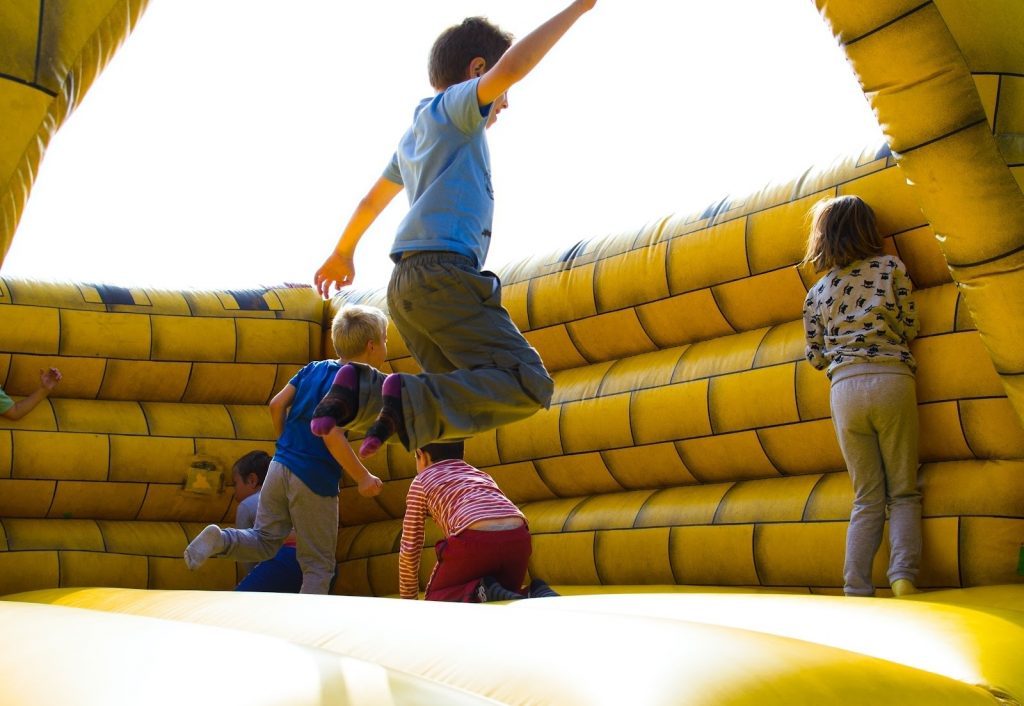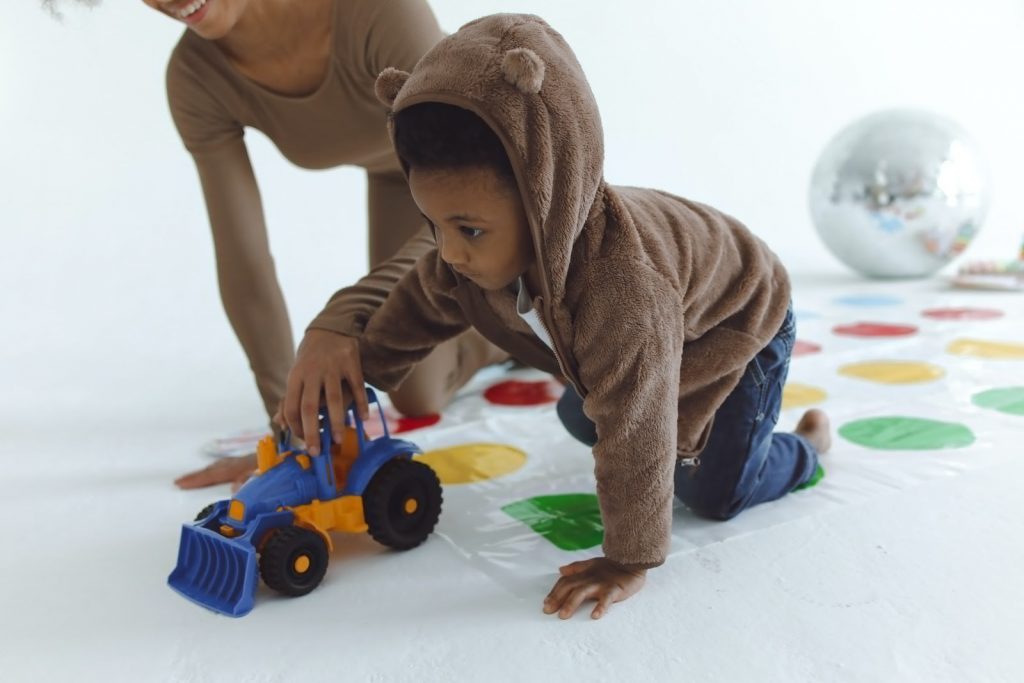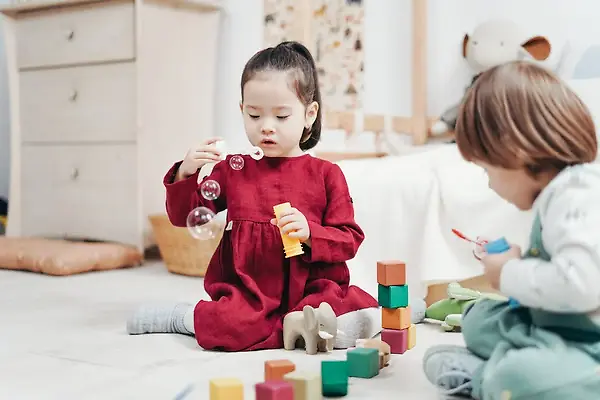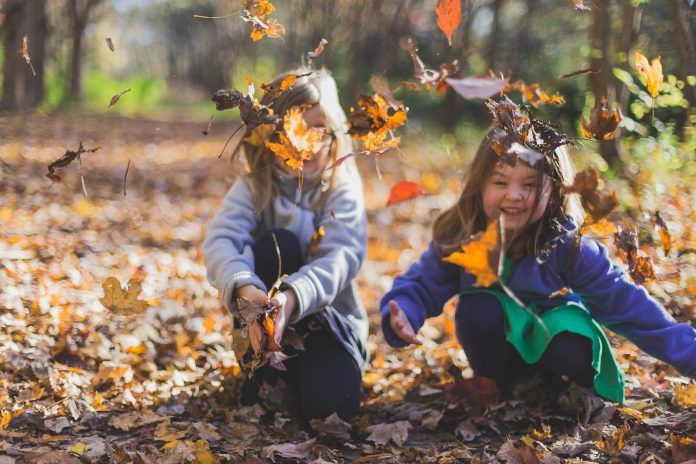Toddlers are energetic and curious little people. However, you can develop your child’s cognitive, social, physical, and emotional skills with the right toddler activities.
Dr. Tiff Jumaily, a Pediatrician from Los Angeles, says, “Play is how children learn.” Play keeps children focused and engaged in the subject, especially toddlers.
Math & ELA | PreK To Grade 5
Kids see fun.
You see real learning outcomes.
Watch your kids fall in love with math & reading through our scientifically designed curriculum.
Parents, try for free Teachers, use for free
Activities keep your child busy and give you time to get your feet up. Below, we have listed the best 50+ fun and educational ideas to keep your toddler busy throughout the year.
Related Radings: Best Learning Games That Your 4-Year-Old Will Love
51 Toddler Activities With Fun and Educational Value

You can’t plan perfect activities for kids. You must go with the flow because you never know when your toddler’s mood might change. Just try to keep your activities fun and focused on a lesson.
Listed in this article are simple activity ideas that you and your toddler can enjoy together.
Related Reading: Best Outdoor Games for Kids of All Ages
Fun Outdoor Toddler Activities Kids Will Love
1. Obstacle Course in the Backyard
Materials Required: Skipping ropes, balls, hula hoops, etc.
How to Plan: Use all the stuff you can get to create an obstacle course for your toddler and their friends in your backyard. Use chairs, tables, and a prize at the end to create an obstacle course for your toddler.
Skills: Motor skills and physical strength.
2. Musical Scavenger Hunt
Materials Required: Colorful chalks and a music player
How to Plan: Is it sunny out there? Invite your neighborhood kids and create colorful circular blocks on your pavement. Blast some music on your phone and let your kids jump on different colored blocks when the music plays and stop when the music stops.
Skills: Color recognition, motor skills, and social bonding
Related Reading: Best Fun Party Games for Kids to Have an Amazing Time
3. Ball Painting
Materials Required: Multiple balls, canvas, and watercolors
How to Plan: If you don’t mind a messy toddler, place a canvas in your backyard and put balls in a watercolor pint. And now practice some ball painting with your kid.
Skills: Reflexes and arm strength
4. Pistol Painting
Materials Required: Water guns, plain white shirts, and colors
How to Plan: Make your entire family wear white shirts, load up water guns and go crazy with your toddler while playing pistol paint in your backyard.
Skills: Color recognition and motor skills
5. Water Slides
Materials Required: Kiddy pool and plastic slide
How to Plan: One of the easy, fun activities for toddlers is filling a kiddy pool with water and arranging the plastic slide around it so your kids can have their personal water slide in the backyard.
Skills: Physical strength and motor skills
6. Sidewalk Chalk Race
Materials Required: Colorful chalk and popsicle sticks
How to Plan: Mix colorful chalk powder with water and freeze it to create chalk popsicles. Now, give one chalk popsicle to your child and their friends to race on the pavement and see who can melt the popsicle faster.
Skills: Color recognition
7. Graffiti
Materials Required: Colorful chalk
How to Plan: Does your kid love to draw on your house walls? Then, give some colorful chalk to your toddlers and let them draw on the pavement outside your house.
Skills: Eye and hand coordination
8. Colorful Bath
Materials Required: Kiddy pool and edible paint
How to Plan: You can invite your kid’s friends for a colorful pool party. Get a few kiddy pools and add different shades of edible paint in each pool for kids to have some fun.
Skills: Color recognition
9. Ice Painting
Materials Required: Watercolors
How to Plan: Freeze up ice blocks in various shapes and allow your toddler to paint them using water paint. This toddler activity is messy but equally fun.
Skills: Motor skills and color recognition
10. Water Balloon Painting
Materials Required: Water balloons and paint
How to Plan: Blow up water balloons with different colors and let your toddler paint that bare wall in your backyard.
Skills: Better reflexes and arm strength
11. Sack Race
Material Required: Old sacks
How to Plan: Everyone knows how to organize a sack race. So, gather up some old sacks that can fit your toddler and let the fun begin.
Skills: Body strength improvement
12. Mud Brick Construction
Materials Required: Old blocks and mud
How to Plan: Get some mud for your toddler and help them make mud bricks using the old blocks as mold. Then, allow them to construct something with self-made mud bricks, like a bridge or hut.
Skills: Engineering skills
13. Count an Object
Materials Required: Nothing
How to Plan: This is one of the simplest toddler learning activities. Whenever you take your toddler for a walk, ask them to count objects around them, like trees, cars, etc.
Skills: Counting and observation skills
Related Reading: Best Learning Activities for 2-Year-Olds Every Parent Must Try Once
14. Kite Flying
Materials Required: A kite
How to Plan: You can reminisce about your childhood days and teach your toddler how to fly a kite on a sunny day. You can also first make a kite with your kiddo for more fun.
Skills: Hand and eye coordination
15. Sponge Fight
Materials Required: Old sponges and colors
How to Plan: When your kids are glued to the television screen, get some old sponges and dunk them in the paint to encourage them to come out and play.
Skills: Color recognition and motor skills
16. Clean the Car
Materials Required: Washcloth
How to Plan: You can make your kid productive and happy with car wash activity. Give a washcloth to your kid to clean your car and have some fun with water.
Skills: Motor skills and cleanliness
17. Bubble Chase
Materials Required: Dish soap and bubble wands
How to Plan: Make homemade bubble solution and bubble wands and let your kid chase colorful bubbles in your backyard.
Skills: Physical strength and sensory skills
18. Gardening
Materials Required: Toy shovel, gloves, and plant seeds
How to Plan: Motivate your kid to do gardening and take care of plants. You can take your kid to a local nursery to pick plants and seeds to sow in your home garden and develop a new hobby. That’s how you can make gardening with children fun.
Skills: Botanical knowledge and developing empathy
19. Bicycle/Tricycle Race
Materials Required: A bicycle or tricycle
How to Plan: Are you struggling to teach your toddler how to ride a bicycle? Invite your neighborhood kids and host a bicycle race. Watching other kids riding bikes can encourage your little guy too.
Skills: Improve motor skills, cardiovascular development, and stamina
20. Garden Party
Materials Required: Party decorations and snacks
How to Plan: This toddler activity is a role-play activity. For example, your child can be a party planner and host a garden party for their stuffed friends.
Skills: Cognitive and creative skills
Best Indoor Toddler Activities

21. Paint Old Stuff
Materials Required: Anything you find in your garage
How to Plan: Painting objects can keep your child busy for a while. You can give them old plastic toys, newspapers, or anything you find in your garage for painting.
Skills: Color recognition
22. Roll and Jump
Materials Required: Tape, shape geometric cutouts, and dice
How to Plan: Use duct tape to stick different shapes on your floor, light circle, rectangle, or square. Ask your child to roll a dice and jump on the shape you say, like a circle. It is the perfect educational activity for toddlers.
Skills: Shape recognition
23. Bathing with Popsicles
Materials Required: Soap popsicles
How to Plan: You can freeze up the liquid soap mixture and create popsicles. Then, you can give one popsicle daily to your child to take a bath. This activity is helpful if your child hates to bathe.
Skills: Improves self-hygiene
24. Color Coordinate Toys
Materials Required: Nothing
How to Plan: Toddlers are well known for creating a mess. So, you can use your toddlers’ messy bedroom to teach them a lesson. You can ask your toddler to organize their toys into different color categories. This activity will clean your home and teach a color lesson to your kiddo.
Skills: Color recognition and organization skills
Related Reading: Colors of the Rainbow and Their Meanings
25. Matching Loops
Materials Required: Froot Loops and color worksheet
How to Plan: Download a color worksheet and give your toddler a bowl of Froot Loops. Now, ask them to take a Froot Loop and match it with the right color in the worksheet.
Skills: Color recognition
26. Toy Washing Station
Materials Required: Old bucket and mild wash soap
How to Plan: You can create a small toy cleaning station at your house to have fun with your children.
Skills: Senses development
27. Rescue Mission
Materials Required: Police costume
How to Plan: Do you still have your child’s old policeman Halloween costume? Then make your toddler wear it and rescue their favorite toys that you have hidden inside your home.
Skills: Analytical thinking and problem-solving skills
28. Measuring Mess
Materials Required: Different sizes of bowls
How to Plan: This toddler activity is messy but fun. You can create a measuring tray with different sizes of bowls. Then, you can ask your child to measure different items like rice, water, etc.
Skills: Measurement skills
29. Baking Station
Materials Required: Kids baking kit
How to Plan: Do you want to keep your child busy while you cook dinner? Then, order a baking kit for your child and set up a baking station in the corner of your kitchen. This way, you can watch your kids while working in the kitchen.
Skills: Eye and hand coordination
30. Tell a Tale
Materials Required: Nothing
How to Plan: This activity lets you turn your child into a little storyteller. Give them a few words like Mom, dog, or home, and ask them to create a story around those words.
Skills: Creative thinking
Related Reading: Free Online Classic Storybooks for Kids
31. Magical Road Box
Materials Required: A cardboard box, markers, and toy cars
How to Plan: Flatten a cardboard box and draw roads on it using a marker. Your toddler can then use it to play with toy cars. Here’s how you can create a magic road box.
Skills: Cognitive skills
32. Sort Puzzles
Materials Required: Multiple puzzle games
How to Plan: Simply mix up different puzzles and ask your kid to sort them and solve each puzzle.
Skills: Sensory development and sorting skills
Related Reading: Best Puzzles For Kids Of All Ages
33. Post-it Number
Materials Required: Tape, toilet roll, sticky notes, and markers
How to Plan: It is a simple math learning activity for toddlers. Just stick toilet paper to a wall using tape in a straight line. Write numbers on different sticky notes and ask your toddler to arrange them in the correct order.
Skills: Counting skills
34. Bath with Toys
Materials Required: Your kid’s favorite toys
How to Plan: Does your toddler throw tantrums before taking a shower? Then put your kid’s favorite toys in the bathtub; they will not come out of the shower for hours.
Skills: Bonding and self-care
35. Dress Up
Materials Required: A timer and an open closet
How to Plan: It is important to make your toddlers self-sufficient. To do so, you can organize a dress-up activity where your kid has to ready themselves within ten minutes.
Skills: Dressing up skills
36. Balloon Tennis
Materials Required: Balloons, tennis paddles
How to Plan: Since a tennis ball is too hard for your toddler, you can blow up some balloons to play tennis inside your home with your kids.
Skills: Motor skills, hand-eye coordination, and focus
Related Reading: Creative Indoor Activities for Kids to Have Some No-Screen Fun
37. Go Fishing
Materials Required: Plastic fish and a tong
How to Plan: Put some plastic fish in a shallow-filled bathtub and give a tong to your toddler to catch fish inside your bathroom.
Skills: Improve hand grip
38. Dot-to-Dot
Materials Required: Sheets of paper and pencils
How to Plan: Draw small dots on a piece of paper and ask your toddler to connect dots with a pencil. The only condition is that no two lines can intersect each other.
Skills: Concentration and pencil-holding grip
39. Read Out Aloud
Materials Required: Picture books
How to Plan: Buy your child some picture books and ask them to read out the story they see through visuals.
Skills: Improve speaking skills
Related Reading: How to Teach Reading to Kids: 10 Best Strategies for Parents
40. Just Dance
Materials Required: Kid-friendly playlist
How to Plan: Pull your couch aside to create space in your living room. Then, play your kid’s favorite songs to dance and have fun.
Skills: Listening and motor skills
Engaging Sensory Activities for Toddlers

41. Glitter Bottle
Materials Required: Glitter dust and a bottle
How to Plan: Take an empty bottle and fill half of it with glitter dust. Your kid can shake this bottle when they feel agitated. The movement of glitter can calm your child.
Skills: Relax the mind
42. Play with Food
Materials Required: Different food items
How to Plan: It might get messy but squishing, tasting, and smearing food can offer a sensory experience to your toddlers. So, encourage your toddler to eat food on their own.
Skills: Recognizing different textures
43. Knead Dough
Materials Required: Flour and water
How to Plan: Give a semi-kneaded dough to your child to squeeze and squish. You can add color or scent to the flour to target more senses.
Skills: Overall sensory development
44. Finger Painting
Materials Required: Paint and paper
How to Plan: Let your toddler dip their fingers into some paint and draw something on a blank canvas. A fun activity of coloring pages for kids.
Skills: Feeling textures
45. Organize Fruits and Vegetables
Materials Required: A variety of fruits and vegetables
How to Plan: Put your child on refrigerator organization duty. Ask them to color coordinate all fruits and vegetables in your refrigerator, like tomatoes with carrots and kale with spinach.
Skills: Shape, color, fruit and vegetable recognition
46. Play with Clay
Materials Required: Modeling clay
How to Plan: Let your toddler create different objects using colorful modeling clay to improve their hand movements.
Skills: Creativity, imagination, and ingenuity
47. Smell a Flower
Materials Required: A variety of flowers
How to Plan: Take your toddler to a park or local nursery and ask them to smell different flowers and remember their names.
Skills: Develop the sense of smell
48. Chase Butterflies
Materials Required: Nothing
How to Plan: During the spring season, take your toddler outside and let them chase butterflies and bugs to strengthen their sensory system.
Skills: Improve endurance, stamina, and enhance overall development
Related Reading: How to Set Up an Outdoor Classroom: A Step by Step Guide
49. Bubble Wrap Popping
Materials Required: Bubble wrap and tape
How to Plan: Find some bubble wrap and tape it to your floor. Now, ask your child to walk barefoot on the bubble wrap and feel the popping sensations on the skin.
Skills: Sense of texture
50. DIY Drum Set
Materials Required: Kitchen utensils
How to Plan: Using kitchen utensils, let your toddler produce different sounds and observe how they react to every sound.
Skills: Listening skills
51. Create Edible Sand
Materials Required: Graham crackers, cookie crumbs, and a bowl
How to Plan: Give your toddler some leftover cookies and crackers to squish and create edible sand.
Skills: Hand movements
Benefits of Educational Activities for Toddlers

Toddler activities can help parents teach children new lessons in a playful manner. These can grab toddlers’ attention for longer and keep them engaged. Moreover, educational activities can help to:
1. Develop Motor Skills
Children’s sensory-motor skills are connected to educational toys. Colorful and vibrant lights and sound improve young children’s vision. Crafty toys and activities help older children improve their fine motor skills. This will help kids develop better personalities and communication skills.
2. Develop Emotions
You can train and socialize your child at home. Children use educational toys to role-play, understand emotions, and develop empathy. Educational activities will put your child in various social situations such as sharing, leading, bonding, caring, waiting, etc. Playing also helps them develop emotional intelligence by responding to emotions like anger, laughter, and sadness.
Related Reading: Interesting Social-Emotional Learning Activities for Classroom
3. Improve Concentration
Playing lets your child focus on a task for a more extended period. Activities introduced early will help your child improve their concentration. This can pay off later in your child’s academic career.
4. Enrich Imagination
Educational activities promote learning and growth and allow your children to think creatively. These activities include games that encourage your child’s creative imagination. As a result, your children will use their creative abilities to create something beautiful.
5. Improve Language Skills
Improvement of language skills is one of the advantages of learning through play. When children play, they use their words to bring toys to life or to narrate their activities. Playtime allows children to practice their language skills.
Pick a Toddler Activity!
As you can see, every activity teaches your child a new lesson and life value. So, you must understand your child’s requirements and select the best toddler activities to help them grow.
For virtual reading and math learning activities, you can use SplashLearn resources. In addition, we have a wide range of free online math games and ELA Games that your toddler can play and pick one or two skills on the way.
Frequently Asked Questions (FAQS)
How can one find the most suitable toddler activities?
Activities help toddlers learn, gain confidence, and form relationships. While playing, children should explore their own interests and surroundings. Making a mess, going outside, playing make-believe, drawing, singing nursery rhymes, and reading are all examples of good ideas for activities with toddlers.
How can I encourage my toddler to try new activities?
Keep a diary of all the times your child was brave and tried something new, and update it regularly. You can decorate with pictures, drawings, or small mementos if possible. Include information about how well your child performed or how much fun you and your child had when trying out this new activity.
























